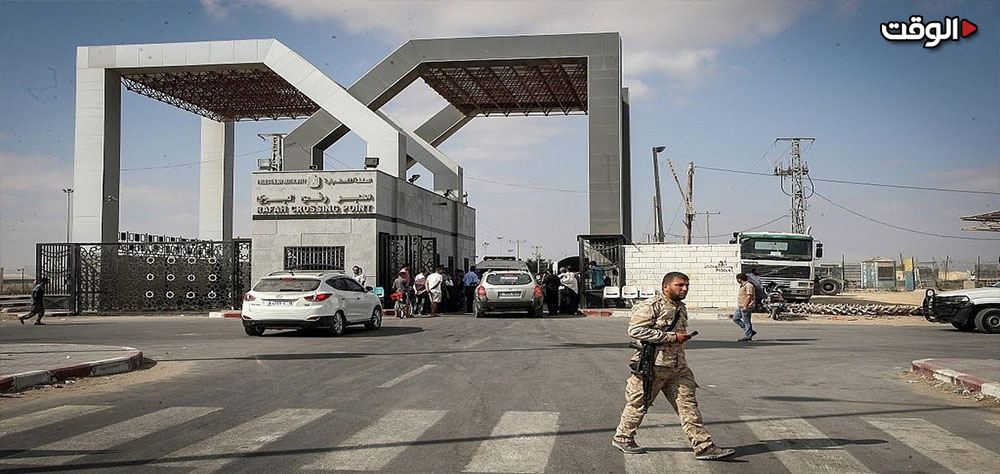Alwaght- Since the beginning of war between Israeli regime and Hamas, Egypt as its officials claim has tried to contain the conflict in Gaza and prevent its expansion. But the invasion of Rafah has pushed the tensions between Cairo and Tel Aviv to their peak, causing the Egyptian officials to review their stated policies.
Egypt is one of the key mediators between Israeli government and Hamas, working for a ceasefire and a prisoner swap deal. But seizure of Rafah border crossing has triggered strong stances from Cairo officials. The country has threatened to halt the ceasefire talks and revoke an authorization for entry of humanitarian aid trucks into Gaza.
But that it not the end of the story. In recent days, the speculations about revocation of Camp David Agreement as a punitive measure against Tel Aviv have now turned into an official and public stance.
In this connection, Maariv newspaper reported that Egyptian officials have told the US to take action to stop the Rafah campaign and return the Israeli government to the negotiations, or Cairo will revoke Camp David Agreement of 1978.
This Israeli newspaper wrote that the tone of the Egyptian media was strong and they have demanded the cancellation of this agreement, an issue that prompted senior Israeli officials to contact their Egyptian counterparts and learn about the nature and details of the demands.
The newspaper wrote that for the first time since the start of the Gaza war, Egypt is asking aid truck drivers to evacuate the Rafah crossing area from the Egyptian side, while continuing to strengthen security measures there, which can be attributed to concerns over insecurity in the border area.
Joining the campaign of Israeli Gaza genocide case in ICC
Legally, the Egyptian government has taken some measures, showing its enragement with the Israeli actions in Rafah. On Friday, Cairo announced it joins a South African-led global campaign suing the Israeli regime for its genocide in Gaza. Egypt joining South Africa's complaint is a very important development at present time and is considered the first legal and diplomatic deterrent for Egypt against Israeli regime.
This Egyptian move is unprecedented, because this is the first legal confrontation between Cairo and Tel Aviv, which shows that Cairo is fed up with the Israeli crimes in Gaza, which also threaten Egyptian national security.
Egyptian experts believe that this action is Cairo's proof of its strong position in support of Palestine and also confirms that this regime has crossed the country's red lines.
According to international law experts, this action strengthens Egypt's legal position and also encourages more countries to join the anti-Israeli ICC genocide case.
Egypt's legal and political moves were made after Israeli forces attacked the Palestinian side of the Rafah border crossing with Egypt and seized control of it, and Israeli tanks penetrated some of the eastern neighborhoods of Rafah.
Egypt was the first country to, in 1979, sign a peace deal with the Israeli regime, an agreement that marked a great achievement for Tel Aviv in in its confrontation of the Arab world.
Egypt and Israel also signed the Philadelphi agreement in 2005 on the borders between Egypt and the Gaza Strip and the management of the Rafah border gate. Many legal experts believe that these agreements have been violated by Israeli tanks reaching Egyptian borders and taking control of Rafah border crossing.
In the viewpoint of the Egyptians, joining the South African-led case is meant to mount the international pressures on hardline Tel Aviv leaders not to expand their Rafah operation and to send a clear message to the Egyptian and Arab public opinion that Cairo is not accomplice to the Israeli military in Gaza crimes.
Egypt is worried that the ground attack of the Israeli army on Rafah will move hundreds of thousands of Palestinians living in this area to the Sinai Desert , and this issue will have serious security and financial consequences for Cairo.
What cards does Egypt have in hand?
Some political experts comment on what Egypt can do to deter the Israeli massacre machine in Rafah.
Egyptian experts believe that national security of Egyptian is violated by Israeli Rafah invasion and silence and passiveness can spark anti-government protests across the country. They suggest that Egypt can close crossings with Israel's Eilat port, revoke tourism agreement with Tel Aviv, halt gas exports to Israeli regime, suspend QIZ agreement, recognize Palestinian resistance groups and support them, and allow public to express their anger with the Israeli crimes to press the Israeli occupation.
Politically, many politicians in Egypt believe that Camp David Agreement has been violated. According to this deal, both sides of the border should be de-militarized, but the Israelis in last week practically breached terms of this agreement with their seizure of Rafah border crossing. Egyptian politicians also think that Tel Aviv violated Philadelphi agreement with its military campaign, too. Some former Egyptian officials recommend the government to suspend Camp David and file a suit against the Israeli regime in the International Court of Justice.



























